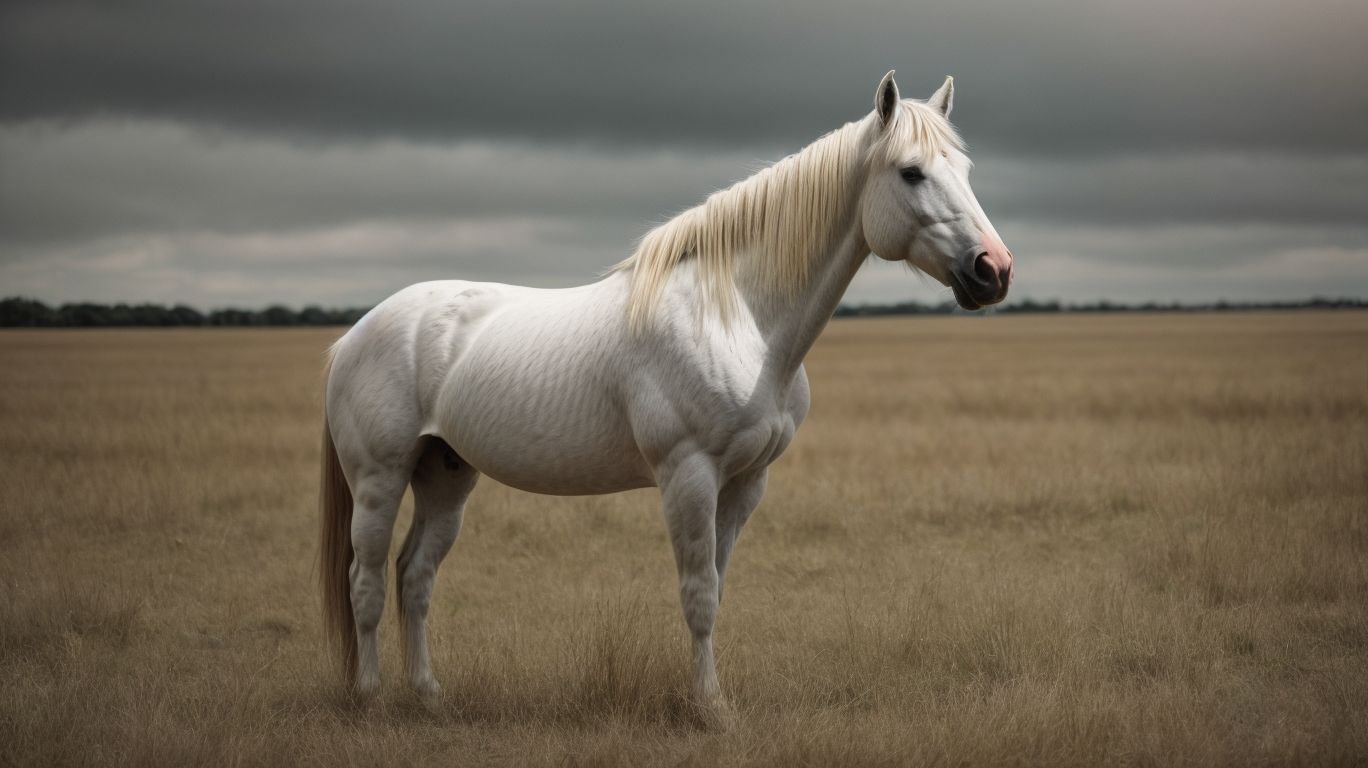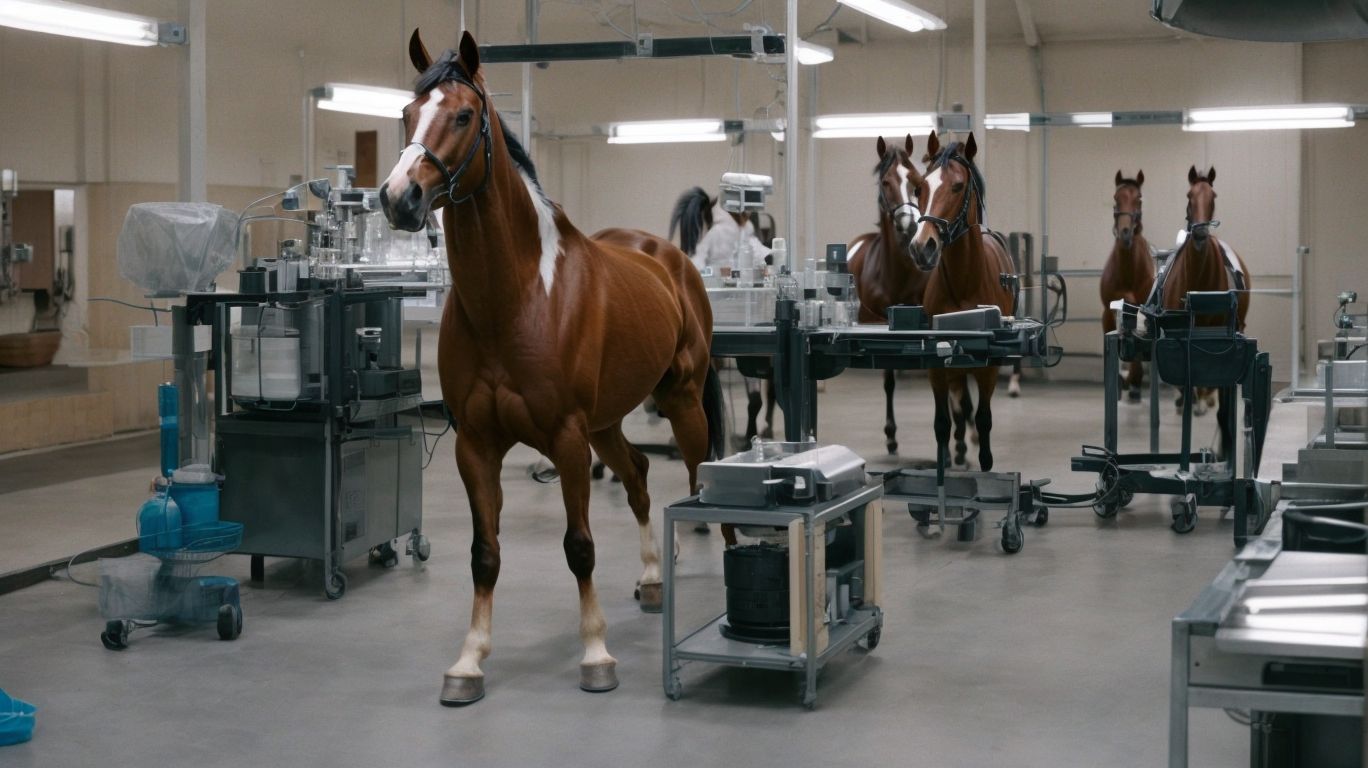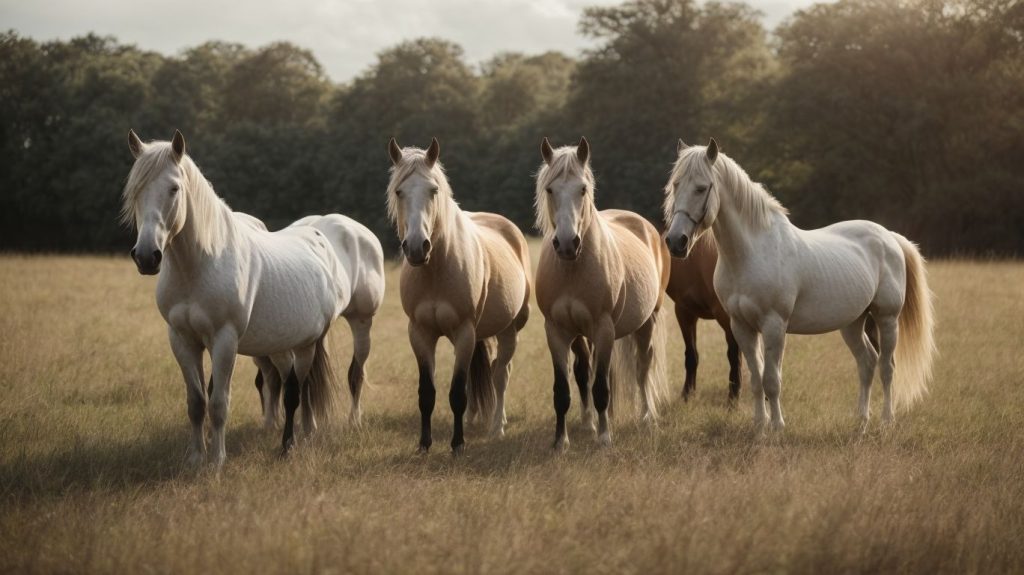In recent years, the topic of cloning has sparked both curiosity and controversy, especially within the equine industry. In this comprehensive article, we will explore the fascinating world of cloned horses, delving into the science behind cloning, the process of cloning horses, and the reasons why this practice has garnered significant attention.
We will uncover the benefits and risks associated with cloning horses, shedding light on the ethical considerations and regulations that surround this cutting-edge technology. We will examine the impact of cloning on the horse industry, and explore the differences between cloned horses and their natural counterparts. We will delve into the cost of cloning a horse and provide insights into the number of cloned horses in existence, as well as highlighting some of the most famous cloned equines.
Join us as we unravel the complexities and implications of cloning in the realm of equestrianism.
Key Takeaways:
- Cloning is the process of creating an exact genetic copy of an organism.
- Horses are cloned through a process called somatic cell nuclear transfer, where the genetic material from a donor horse is transferred into an empty egg cell.
- Horses are cloned for various reasons, including preserving valuable genetics and producing high-performing horses.
What Is Cloning?

Credits: Horselife.Org – Roger Jones
Cloning is the process of creating a genetically identical copy of an organism, and in the case of equine cloning, it involves replicating horses through genetic preservation and manipulation of DNA and cells.
This complex procedure typically begins with obtaining a cell sample from the animal to be cloned, often from skin tissue or hair follicles. The key element is the isolation of the donor DNA, which contains the genetic blueprint of the horse. Once the DNA is extracted, scientists carefully manipulate it to remove the nucleus, which holds the complete genetic information. This nucleus is then inserted into a donor egg from which the original nucleus has been removed, initiating the development of a surrogate embryo. This embryo is then implanted into a surrogate mare to carry the pregnancy to term, resulting in the birth of a genetically identical foal.
How Are Horses Cloned?

Credits: Horselife.Org – Carl Garcia
Horses are cloned using advanced reproductive technologies provided by companies like ViaGen, involving a detailed cloning process that begins with the extraction and manipulation of DNA and cells to generate surrogate embryos and ultimately lead to the successful birth of cloned foals or mules.
The cloning process begins by obtaining a donor cell from the animal intended to be cloned, which contains all of the genetic material necessary for cloning. This cell is then cultured and the nucleus, containing the DNA, is extracted. The nucleus is then inserted into an egg cell from which the nucleus has been removed. The reconstructed cell is then stimulated to divide and develop into an embryo, creating a genetic copy of the original animal. This embryo is then transferred to a surrogate mare, where it goes through the normal gestation process, resulting in the birth of a cloned foal or mule.
Why Are Horses Cloned?
Horses are cloned for various purposes, including research advancements, technological innovations, and conservation efforts aimed at the recovery of endangered species such as the Przewalski’s horse, reflecting the significant impact of cloning technology in the equine industry.
Horse cloning has been instrumental in advancing scientific knowledge and medical research. By creating genetically identical copies of exceptional horses, researchers can study the hereditary factors that contribute to specific traits, enhancing our understanding of equine genetics and physiology.
Cloning has facilitated the preservation of exceptional bloodlines, contributing to the improvement of equine breeds and the prevention of genetic diseases. In addition, the conservation of endangered horse species through cloning aligns with global initiatives for biodiversity conservation and serves as a testament to the potential of cloning technology in species preservation.
What Are The Benefits Of Cloning Horses?
The cloning of horses yields significant benefits in terms of genetic preservation, advanced technology, and conservation efforts, leading to the successful birth of cloned foals and mules, contributing to the recovery of endangered species and genetic diversity within equine populations.
Horse cloning has opened up new avenues for preserving valuable genetic traits that might otherwise have been lost. With the capability to replicate specific genetic makeup, this process aids in retaining desirable traits and bloodlines, crucial to maintaining the integrity and diversity of equine populations. The technological advancements in horse cloning have facilitated breakthroughs in assisted reproduction techniques, offering solutions to fertility challenges and enhancing breeding programs.
What Are The Risks Of Cloning Horses?
While horse cloning offers remarkable potential, it also presents inherent risks related to the cloning process, technological complexities, genetic preservation challenges, and the manipulation of cells, DNA, and surrogate embryos, highlighting the nuanced nature of equine cloning procedures.
One of the main risks associated with horse cloning is the high rate of unsuccessful attempts due to the technical challenges involved in the process. The intricacies of genetic preservation also pose limitations, as it’s not always possible to preserve all the desirable traits in the cloned horse. The manipulation of cells and DNA during the cloning procedure can lead to unexpected genetic abnormalities, affecting the health and viability of the cloned horse.
Equine cloning involves navigating through these complexities while striving to maintain the integrity and well-being of the animals.
How Many Cloned Horses Exist?
The precise number of cloned horses in existence varies, but companies such as ViaGen have contributed significantly to the successful birth of cloned horses, showcasing the impact of advanced technology in the field of equine cloning.
Equine cloning has been a subject of both fascination and controversy for years. ViaGen, a prominent player in this domain, has refined the cloning techniques, leading to successful outcomes in bringing cloned horses to life. This technological breakthrough has paved the way for the proliferation of cloned horses around the world, sparking discussions on the ethical, genetic, and practical implications of this practice.
What Are The Most Famous Cloned Horses?
Several cloned horses have gained widespread recognition, with notable examples including those generated through successful cloning processes facilitated by entities such as ViaGen, and even the cloning of the endangered Przewalski’s horse at the San Diego Zoo.
The cloning of horses has led to the rebirth of legendary animals, such as the famous cloned mare Prometea, who made history as the world’s first horse to be cloned. The renowned clone of the exceptional show jumper Gem Twist, named Gemini, has exemplified how cloning can provide an avenue for preserving the genetics of extraordinary equine athletes. These achievements have not only stirred discussions in the equestrian world but also raised ethical debates regarding the ramifications of cloning in the realm of equine breeding.
What Are The Differences Between Cloned Horses And Natural Horses?
Cloned horses exhibit variances from natural horses in terms of genetics, physical traits, and behavioral patterns, stemming from the unique nature of the cloning process and genetic replication principles.
Genetically, cloned horses have an identical set of genes as their donor, resulting in a lack of genetic diversity compared to naturally bred horses. This can lead to potential health issues due to the absence of genetic variation.
Physically, cloned horses may demonstrate differences in coat color, markings, or even size compared to their genetic source. Behavioral variances have been observed, as cloned horses may display altered temperaments or preferences in comparison to their naturally conceived counterparts.
Genetics
Genetically, cloned horses diverge from natural horses due to the intricacies of the cloning process, involving manipulations of DNA and cells that result in distinct genetic compositions compared to their natural counterparts.
Cloning involves the transfer of genetic material from the donor horse’s somatic cells into an empty egg, resulting in the creation of an embryo with the same genetic makeup as the donor. As a result, cloned horses tend to exhibit a higher frequency of genetic abnormalities or defects, impacting their physical and behavioral traits. This variance in genetic composition raises ethical and biological concerns, as it may affect their overall health, longevity, and reproductive capabilities.
Physical Characteristics
Cloned horses may display deviations in physical characteristics when compared to natural horses, reflecting the influence of the cloning process on the manifestation of distinct physical attributes.
For example, cloned horses might exhibit differences in coat color, size, and conformation due to the altered genetic makeup resulting from the cloning procedure. These variations can include subtle changes in muscle mass distribution, hoof shape, and even certain behavioral traits that differ from those seen in naturally bred horses. It is important to note that these differences in physical traits do not indicate inferiority or incapability; rather, they highlight the unique complexities of the cloning process and the resulting genetic expressions in the cloned horses.
Behavior
Behavioral disparities between cloned horses and natural horses can arise from the intricate nuances of the cloning process, resulting in distinctive behavioral patterns that differentiate cloned equines from their natural counterparts.
Contrary to natural horses that develop behavioral traits through a blend of genetic inheritance and environmental factors, cloned horses may exhibit unique behavioral tendencies influenced by the cloning process. This can manifest in altered responses to stimuli, social interactions, or stressors, delineating them from their non-cloned peers. The absence of varied genetic recombination and the potential impact of donor cell age or epigenetic factors in the cloning process could contribute to dissimilar behavioral expressions in cloned horses.
What Is The Cost Of Cloning A Horse?
The cost of cloning a horse can be substantial, involving various expenses related to the equine cloning process, which is facilitated by companies such as ViaGen, reflecting the investment required for the replication of equine genetic material.
The process of cloning a horse involves multiple stages, each incurring specific financial implications. Initial expenses include the collection and preservation of the genetic material, which can be a costly procedure. Subsequently, the actual cloning process itself requires advanced technology, skilled labor, and state-of-the-art facilities, all of which contribute to the overall cost.
Companies like ViaGen play a crucial role in providing the necessary expertise and resources for successful equine cloning, adding to the financial considerations involved in this intricate scientific endeavor.
What Are The Regulations And Ethics Surrounding Cloned Horses?
The cloning of horses is subject to stringent regulations and ethical considerations, especially concerning genetic preservation, DNA manipulation, and the technological complexities associated with equine cloning, reflecting the ethical framework within which equine cloning operates.
Regulatory oversight of horse cloning involves various aspects, from ensuring the welfare of the animals involved to managing the potential implications of genetic manipulation. Genetic preservation is a central concern in equine cloning, aiming to maintain the purity and genetic diversity of distinct horse breeds, while also safeguarding their heritage.
The DNA manipulation processes in equine cloning require careful adherence to ethical and legal guidelines to prevent any potential risks and maintain the integrity of the cloned offspring. Technological intricacies encompass the entire cloning process, from the extraction and modification of genetic material to the successful gestation and birth of a healthy cloned foal.
How Does Cloning Affect The Horse Industry?
The impact of cloning on the horse industry encompasses technological advancements, implications for genetic preservation, and considerations related to the integration of cloned equines into various sectors, reflecting the transformative influence of equine cloning on industry dynamics.
Technological advancements in equine cloning have enabled scientists to reproduce exceptional equine specimens, revolutionizing breeding practices and enhancing the genetic diversity within the industry. This has also raised ethical and regulatory concerns, intensifying discussions about the integrity of equine bloodlines and the potential long-term effects of widespread cloning on the equine gene pool.
The integration of cloned horses into various sectors such as racing, equestrian sports, and leisure activities has sparked debates about fairness, performance enhancement, and the authenticity of competition. The use of cloned horses in these sectors is reshaping traditional standards and practices, ultimately redefining the conventional perceptions of equine excellence and capability.
Frequently Asked Questions
What is the definition of a cloned horse?
A cloned horse is an exact genetic replica of another horse, created through a scientific process that involves transferring genetic material from the original horse into a donor egg.
How are cloned horses created?
Cloned horses are created through a process called somatic cell nuclear transfer (SCNT). This involves taking a cell from the original horse, such as a skin cell, and inserting its genetic material into a donor egg that has had its own genetic material removed.
Are all cloned horses identical?
No, while cloned horses have the same exact genetic makeup as the original horse, they may still exhibit small variations in physical appearance and behavior due to environmental factors and the influence of epigenetics.
What is the success rate of cloning horses?
The success rate of cloning horses varies greatly, with some experts estimating it to be anywhere from 10-25%. Factors such as the health and age of the original horse, the quality of the donor egg, and the expertise of the cloning process can all affect the success rate.
Can cloned horses compete in equestrian events?
Yes, cloned horses are allowed to compete in equestrian events in most countries. However, there are some restrictions in place and it is ultimately up to the governing bodies of each event to decide if cloned horses are allowed to participate.
Are there any potential health risks for cloned horses?
While there have been concerns about potential health risks for cloned animals, such as higher rates of diseases and developmental abnormalities, studies have found that cloned horses are generally healthy and do not have a higher incidence of health issues compared to non-cloned horses.



